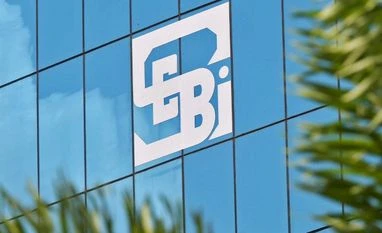The Securities and Exchange Board of India (Sebi) is set to announce a platform for online sale of privately placed corporate debt.
The announcement is likely after the regulator's quarterly board meeting on Monday.
Currently, most of the sale of privately placed corporate debt happens through the over-the-counter (OTC) route. The new system is likely to act as an alternative to OTC sales, which are typically conducted between two parties over phone.
The final regulation governing the proposed platform would be cleared after market consultation.
Currently, close to 90 per cent of bond issuances happen through the private route, which leaves little room for regulatory oversight.
Moving primary issuances online could be the precursor to shift even the whole of secondary market trading online. While there are trading platforms by the BSE and the National Stock Exchange, and it is mandatory to report deals to the exchanges, not much trading takes place on these platforms. Therefore, price discovery suffers and trading in corporate bonds never really took off despite several high-level committees recommending such a move.
The Financial Sector Legislative Reforms Commission (FSLRC) committee, headed by Reserve Bank of India Governor Raghuram Rajan, had suggested that corporate bond trading should move online to increase depth and give companies an opportunity to raise money from alternate sources.
Introduction of online trading for government securities (G-sec) has led to standardisation in trades and has also boosted volumes.
With the introduction of the negotiated dealing system-order matching (NDS-OM) platform, the volume in the G-sec market exploded and a lot of standardisations were introduced, said Soumyajit Niyogi, analyst for rates trading at SBI DFHI, a primary dealer for government bonds. Same can be replicated in corporate bonds, expert say.
NDS-OM is a trading platform for G-secs introduced by the central bank.
"This, indeed, is a welcome move as it will bring in more transparency for both the investor and the issuer as they will be able to see at what levels the bids are coming in. Government bonds and debt are already being sold online, so a similar treatment for corporate bonds was the market requirement," said N S Venkatesh, executive director, IDBI Bank.
At the board meeting, the market regulator is also likely to clear the framework for green bonds to give them a push for domestic fund-raising. Sebi could have guidelines on end-use monitoring and special incentives for these bonds which invest majorly in projects that help in reducing the carbon footprint.
The market regulator is also mulling creation of a special asset class called 'YeildCo' and its listing. This asset class globally invests only in green or renewable energy projects and facilitates predictable cash flows.
The announcement is likely after the regulator's quarterly board meeting on Monday.
Currently, most of the sale of privately placed corporate debt happens through the over-the-counter (OTC) route. The new system is likely to act as an alternative to OTC sales, which are typically conducted between two parties over phone.
More From This Section
"The objective is to push all issuances online to boost market activity," said a source who did not wish to be named.
The final regulation governing the proposed platform would be cleared after market consultation.
Currently, close to 90 per cent of bond issuances happen through the private route, which leaves little room for regulatory oversight.
Moving primary issuances online could be the precursor to shift even the whole of secondary market trading online. While there are trading platforms by the BSE and the National Stock Exchange, and it is mandatory to report deals to the exchanges, not much trading takes place on these platforms. Therefore, price discovery suffers and trading in corporate bonds never really took off despite several high-level committees recommending such a move.
The Financial Sector Legislative Reforms Commission (FSLRC) committee, headed by Reserve Bank of India Governor Raghuram Rajan, had suggested that corporate bond trading should move online to increase depth and give companies an opportunity to raise money from alternate sources.
Introduction of online trading for government securities (G-sec) has led to standardisation in trades and has also boosted volumes.
With the introduction of the negotiated dealing system-order matching (NDS-OM) platform, the volume in the G-sec market exploded and a lot of standardisations were introduced, said Soumyajit Niyogi, analyst for rates trading at SBI DFHI, a primary dealer for government bonds. Same can be replicated in corporate bonds, expert say.
NDS-OM is a trading platform for G-secs introduced by the central bank.
"This, indeed, is a welcome move as it will bring in more transparency for both the investor and the issuer as they will be able to see at what levels the bids are coming in. Government bonds and debt are already being sold online, so a similar treatment for corporate bonds was the market requirement," said N S Venkatesh, executive director, IDBI Bank.
At the board meeting, the market regulator is also likely to clear the framework for green bonds to give them a push for domestic fund-raising. Sebi could have guidelines on end-use monitoring and special incentives for these bonds which invest majorly in projects that help in reducing the carbon footprint.
The market regulator is also mulling creation of a special asset class called 'YeildCo' and its listing. This asset class globally invests only in green or renewable energy projects and facilitates predictable cash flows.
)